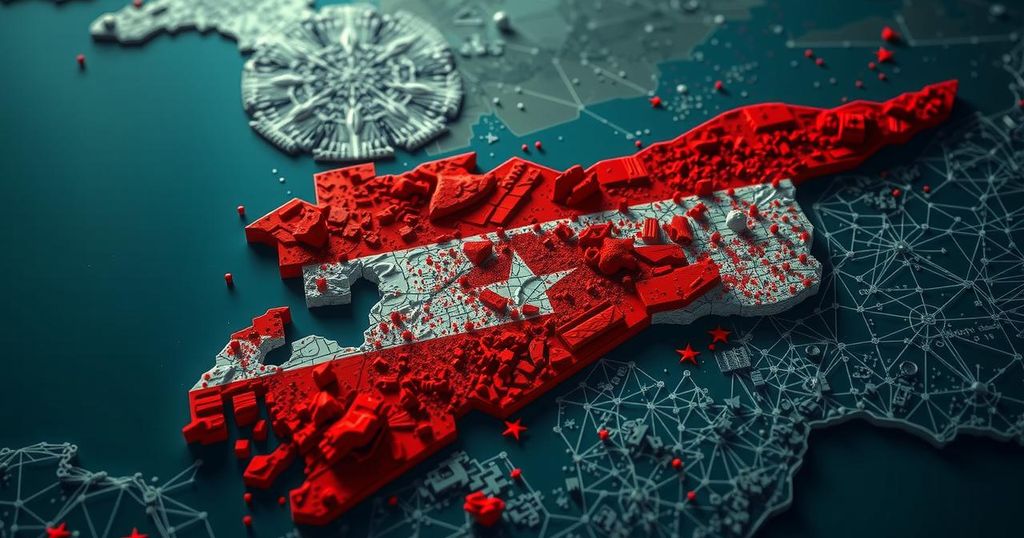The Syrian conflict is crucial for Russia and Iran in maintaining regional influence and military access. Both nations back Bashar Assad but face challenges due to recent advancements by rebel forces. Russia seeks to protect its Mediterranean foothold, while Iran relies on Syria for its proxy networks, especially regarding Hezbollah. The recent developments signal vulnerabilities that could alter their strategies moving forward.
The Syrian conflict is pivotal for both Russia and Iran, as it affects their regional influence and military strategies. Russia has conducted airstrikes against rebel forces threatening the Assad regime, seeking to maintain its foothold in Syria through military bases crucial for access to the Mediterranean Sea. Natasha Hall from the Center for Strategic and International Studies emphasizes that President Putin cannot afford to lose control in Syria, as it plays a vital role in his broader geopolitical ambitions, including operations extending to Africa.
Similarly, Iran regards Syria as essential for sustaining its proxy network across the region, directly linking Tehran to its allies such as Hezbollah in Lebanon. Steven Cook from the Council on Foreign Relations points out that Iran has a significant military presence in Syria, utilizing the terrain for weapon manufacturing and as a command center for coordinating with Hezbollah. This strategic corridor is under threat due to recent Israeli actions against Iranian interests, compelling Tehran to bolster its involvement with the Assad regime to regain a foothold.
Additionally, the historical context of the Russia-Syria partnership, dating back to the Cold War, has evolved under Putin’s leadership, resulting in Russia’s direct military intervention starting in 2015. Despite recent distractions caused by conflicts elsewhere, both nations remain invested in Syria as a critical battleground. National security advisor Jake Sullivan notes that the upheaval in Syria is not surprising given the weakened state of its backers.
However, the recent advances by rebel forces, specifically the takeover of Aleppo, symbolize a significant setback for both Moscow and Tehran, illustrating the vulnerability of their ally after years of conflict. This situation marks a critical juncture for their strategies in the region and may prompt shifts in their long-term goals.
The Syrian conflict has attracted global attention due to its complex geopolitical implications, particularly concerning Russia and Iran. Under President Bashar Assad, Syria has been a battleground for various factions since the civil war erupted in 2011. Russia’s involvement, characterized by military support and airstrikes, aimed to secure its military interests and advance its influence against Western powers. Meanwhile, Iran has invested in establishing a network of proxies to extend its reach and support regional allies like Hezbollah. The ongoing combat and geopolitical maneuvers have showcased the vulnerabilities of both Russia and Iran, leading to shifting dynamics in their partnership with Syria.
The Syrian conflict’s significance for Russia and Iran cannot be overstated, as it serves as a cornerstone for their strategic ambitions in the Middle East. The difficulties faced by their ally, Assad, highlighted by recent territorial losses, raise questions about the sustainability of their influence. Both nations must navigate a complex landscape shaped by regional conflicts and challenges posed by external actors, prompting continued reassessment of their approaches in securing their interests.
Original Source: www.businessinsider.com






